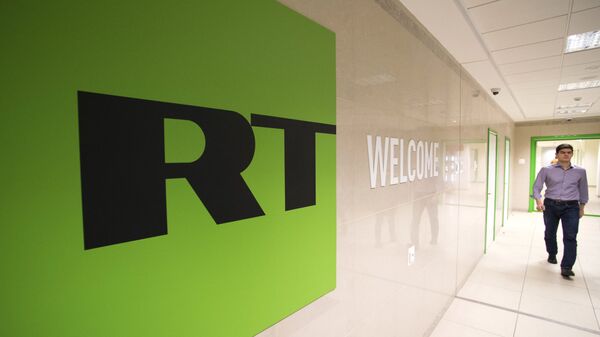Last week the influential Atlantic Council led by President Obama’s former Ambassador to Singapore and failed 2012 Republican candidate Jon Huntsman released a paper contemplating preemptive cyber attacks against the Russian infrastructure and RT’s offices. This week, RT was the target of the exact type of cyber terrorism that was postulated in the article creating cause for concern.
RT’s systems have been bombarded throughout the week by a "particularly well-planned series of Distributed Denial of Service (DDoS) attacks that continued into early Friday" the outlet said in an article. The attacks targeted the station’s data centers and internet provider in the US, Europe and Russia.
The attack, which if conducted by a government would amount to an instance of censorship, caused repeated disruptions for RT.com visitors forcing the station to undertake necessary actions to prevent further attacks. According to RT’s IT specialists, "the attackers were trying to overwhelm to provider’s capacity."
The attacks, according to IT experts, all originate from the same source as is established by the tactics and code signature used by the attackers. The hackers were deemed to be sophisticated selecting precise targets in order to create maximum disruption.
"It looks like the attackers are continuously studying the company’s outer network infrastructure and its security mechanisms. The cyberattacks that we are seeing are not the most powerful, but they are different from hundreds of others in their cunning methods and analysis – they are looking at how we will react or how we switch the traffic," explained RT’s Head of Interactive Projects Elvira Chudnovskaya.
The attacks on the RT system are the most substantial in years with comparable attacks striking RT.com in February 2012 and in August 2012. The hacker group AntiLeaks, which opposed Julian Assange’s WikiLeaks, took responsibility for those two prior attacks.
Whether the attacks were conducted by US government or NATO assets or were simply conducted by individuals who share a like-minded approach to the Atlantic Council remains unclear.




